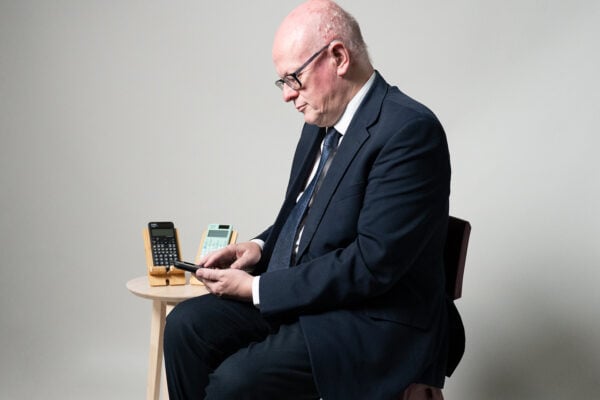Careers that use mathematics: real-life inspiration

Wondering where mathematics could take you when you finish your studies? Maths turns up everywhere – in business, science, technology and even the weather forecast. Employers value the logical thinking, problem-solving and analytical skills that come with studying this subject at a high level.
In this blog, we highlight some of the most exciting careers that use maths, from data science to engineering.
Why mathematics opens doors
The skills you gain and develop when studying maths are highly valued in all sorts of careers.
From finance and engineering to tech and healthcare, employers are constantly looking for people who can apply mathematical thinking to real-world problems. That’s why maths is often seen as a gateway subject: it doesn’t just prepare you for one career path, it keeps your options wide open.
ITJobsWatch provides a regularly updated ranking of employment vacancies based on skills needed. Job openings listing mathematics skills as a key requirement have been steadily moving up the rankings in recent years, advancing 30 places in the six-month period to the end of September 2025, when compared with the same period a year earlier.
Career spotlights
Data scientist/analyst
If you’re doing well in statistics and generally enjoy working with numbers and technology, data science could be your thing.
Data scientists use maths every day to make sense of massive datasets, spotting patterns and turning them into insights that help businesses and organisations make the right decisions.
From predicting what people will buy next to improving healthcare systems, this career blends statistics, coding and problem-solving. It’s also one of the fastest-growing maths-related careers, so demand is high. If you feel comfortable with spreadsheets, apps and digital tools, data science is a great example of how maths skills can open up a range of exciting job options.
Actuary
Actuaries are often described as having one of the most maths-intensive jobs out there. They use statistics, probability and financial theory to assess risks, such as how likely an event is and what it could cost.
Insurance companies, pensions providers and even governments rely on actuaries to make decisions that affect millions of people. It’s a career that rewards accuracy, logical thinking and persistence, and it regularly features on lists of high-paying careers in mathematics.
If you love tackling complex problems and want a profession that has maths at its core, becoming an actuary could be an option to consider.
Quantitative analyst
Quantitative analysts work in the fast-paced world of finance, using advanced maths and coding to build models that predict how markets behave. These models help banks and investment firms make trades and manage risk, often in split seconds.
It’s a career that combines mathematical skills with computing and economics, so it could hold a strong appeal for high-achieving students who enjoy both numbers and strategy.
Maths-driven careers don’t come much more intense or competitive than this – but if you feel confident you can thrive under pressure, it can be exciting, rewarding and very well paid. Quantitative analysts are a clear example of how powerful mathematical thinking can be in the real world.
Engineer/operational researcher
From building bridges to improving public transport, engineers and operational researchers demonstrate how maths powers real-world projects.
Engineers apply mathematical principles to design and test everything from aircraft to smartphones, while operational researchers use data and modelling to solve practical problems like reducing traffic jams or making supply chains more efficient.
These careers are about turning theory into results you can see and use every day. If you like the idea of applying classroom learning to tangible outcomes, engineering and operational research are great examples of professions that use maths in creative, hands-on ways.
Meteorologist or biostatistician
If you’re interested in science and the environment, meteorology or biostatistics could be a perfect fit.
Meteorologists use complex mathematical models to forecast the weather and study climate patterns, while biostatisticians apply maths to medical and biological data, helping improve healthcare and understand disease trends.
Both roles rely heavily on statistics and problem-solving, but they also connect to real-world issues like protecting the planet and supporting public health.
If you’re interested in pursuing a maths-related career with a sense of purpose, these jobs show how mathematical skills can make a genuine difference to society.
How to get started
Choosing the right mix of subjects is an important first step if you’re looking ahead to careers that use mathematics.
At A-level, maths pairs well with further maths, physics, computer science or economics, depending on the direction you’d like to go in. At university, combining maths with subjects like engineering, finance, data science or biology can open even more doors.
Outside the classroom, you can build skills through free online resources. YouTube tutorials could be an easy way to start practising problem-solving and coding basics, for example.
It’s also worth trying small projects, such as analysing sports stats or data sets online, to see how maths works in real life. The earlier you start exploring, the more you’ll discover about the maths-related careers that excite you and how to develop the skills employers are looking for.
Check out the Casio Education blog for more insights into learning maths and how to get the best out of your scientific or graphic calculator.



